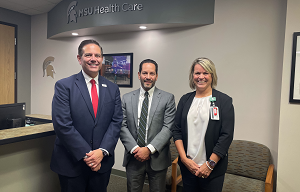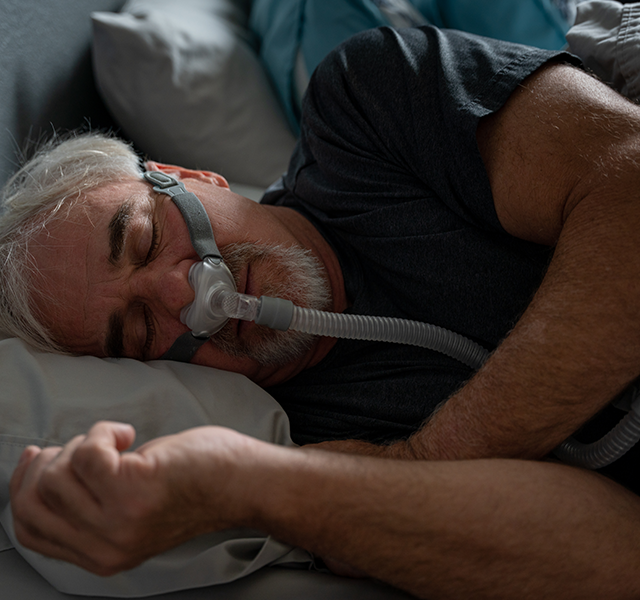
Care at Home
If you’ve recently been a hospital in-patient or had an Emergency Room visit, your provider may have recommended hospital-level care at home. With Henry Ford Care at Home, you can get the support you need to recover right at home.
Who is eligible for Care at Home?
Henry Ford Care at Home is available only to established Henry Ford Health patients. While you are hospitalized or in the Emergency Room, your provider or other caregivers will let you know if you’re a candidate for Care at Home. There are many conditions we can treat and help you recover from without you needing to be admitted to the hospital or a skilled nursing or rehab facility. We’ll make sure you’re well enough to be transitioned from the emergency room or hospital and will set up the care you need to recover safely at home.
Conditions we treat at home
There are many medical conditions that we can treat from home, including:
- Asthma
- Congestive heart failure
- Pneumonia
- Urinary tract infection
What to expect the few days after discharge from the ER or hospital
Our care at home services begin when you leave the hospital. We’ll make sure you have everything you need at home. Your care includes:
An experienced nurse will
- Visit you at home for a few hours every day
- Check on your progress and monitor your blood pressure, temperature and weight
- Administer intravenous (IV) medications and draw blood, if needed
- Help you take medications
- Help you manage any pain
An RN recovery care coordinator will
- Be available (by phone or via tablet) 24/7 to answer your questions or handle any problems that may come up
- Make sure any equipment you need is delivered to your home
- Coordinate your care with your primary care doctor and any specialists you may have
- Monitor your progress
- Help you schedule follow-up appointments
- Provide you with health education
We provide the following equipment to monitor your progress
- A computer tablet to communicate with your care team
- A blood pressure cuff, weight scale or other easy-to-use devices
How long does Care at Home support last?
The Care at Home team will monitor your progress for the first three to five days after you return home. Once you get back to your normal routine, we’ll transfer your care back to your primary care doctor. However, your Care at Home recovery care coordinator will still be available for you 24/7. Care at Home support can last up to 60 days, if recommended by your provider.


'A Sweet Beginning': The Story Behind the Caramel Apples on Day 1

Concussion Symptoms And Signs: What To Watch For
Since concussion signs are rarely clear cut, a neurologist explains which concussion symptoms to watch for after a head injury.

Why Do I Get So Hangry?
Why does our mood change when we get really hungry? When does low blood sugar become a problem? Learn how to manage and understand your "hangry" feelings.

Can Pillows Treat Sleep Apnea?
People with sleep apnea - and those who share a bed with them - are often desperate for ways to improve snoring and other symptoms. Could a pillow be the answer?

Are Seniors Who Use the Internet ‘Sharper’?
Can older adults boost brain health by using smartphones and tablets? Research suggests they could. Learn more about this brain health strategy.
.svg?iar=0&hash=F6049510E33E4E6D8196C26CCC0A64A4)

/hfh-logo-main--white.svg?iar=0&hash=ED491CBFADFB7670FAE94559C98D7798)